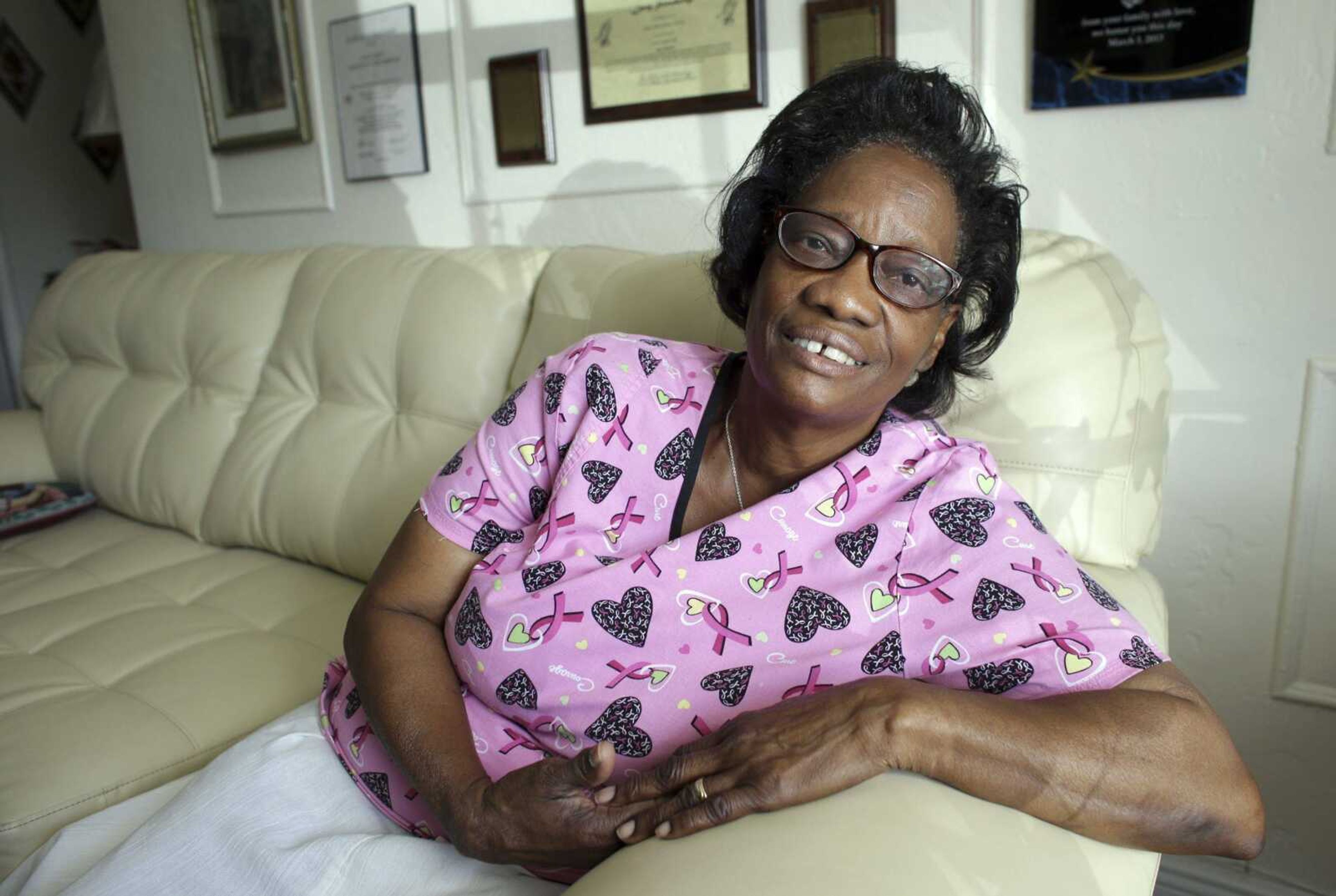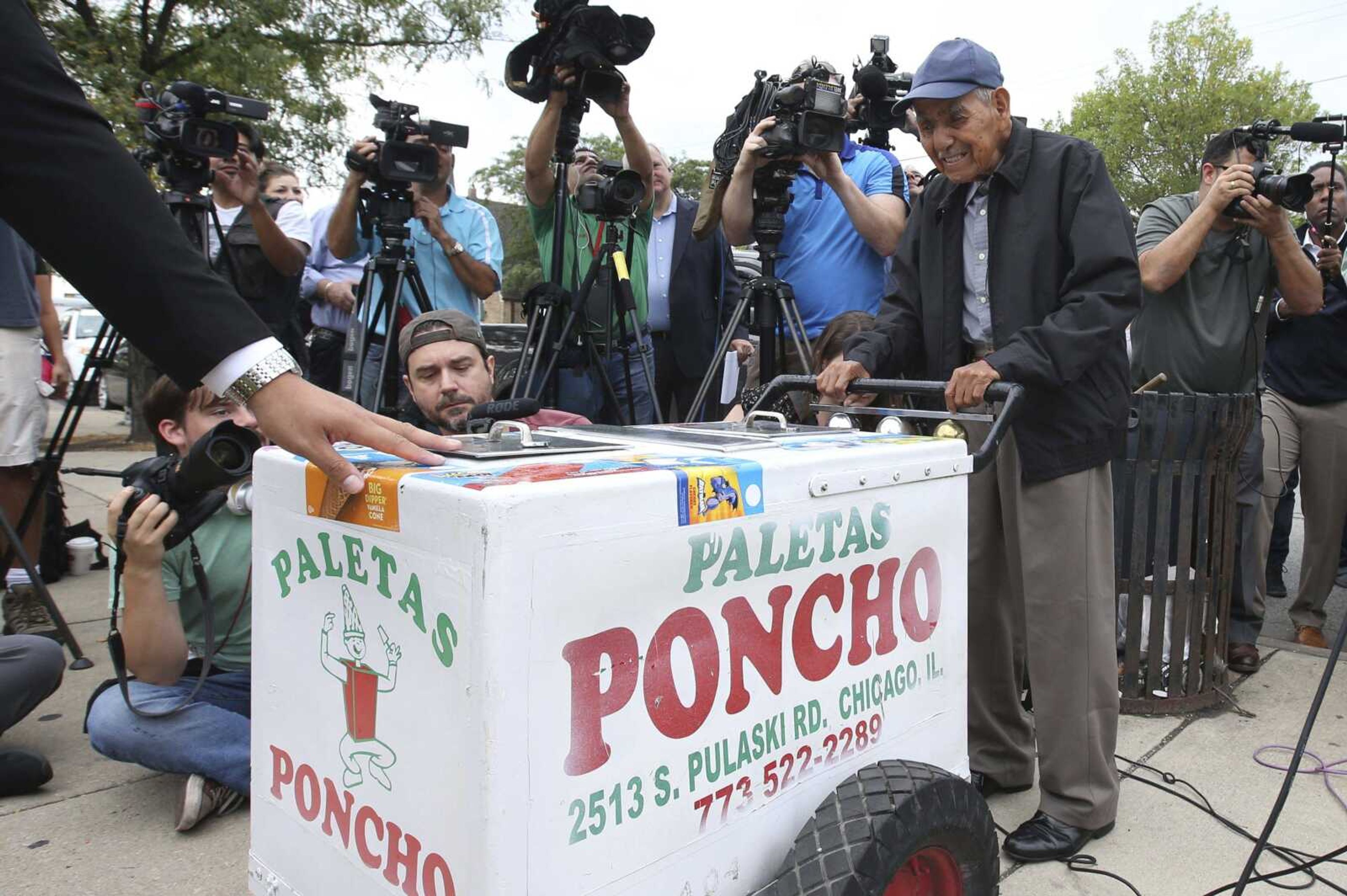For some low-income workers, retirement is only a dream
CHICAGO -- It was a striking image. A photo of an 89-year-old man hunched over, struggling to push his cart with frozen treats. Fidencio Sanchez works long hours every day selling the treats because he couldn't afford to retire. The photo and his story went viral, and thousands of people donated more than $384,000 for his retirement...
CHICAGO -- It was a striking image. A photo of an 89-year-old man hunched over, struggling to push his cart with frozen treats.
Fidencio Sanchez works long hours every day selling the treats because he couldn't afford to retire. The photo and his story went viral, and thousands of people donated more than $384,000 for his retirement.
His story is a window into a dark reality: Many low-wage workers say they can't afford to retire.
With no money saved for retirement, home-care worker Gwen Strowbridge, 71, of Deerfield, Florida, plans to stay on the job until she can't work anymore.
"I can't see it in the future. I'll stop working if my health won't allow me to keep working," Strowbridge said. She works six days a week caring for a 100-year-old woman in Florida.

Studies have found about one-third of low-wage workers like Strawbridge say they'll never be able to afford retirement. The problem is particularly acute among minority women.
A 2016 study by The Associated Press-NORC Center for Public Affairs Research found one-quarter of workers 50 and older say they won't retire. Among low-wage workers, earning less than $50,000 a year, it was 33 percent.
Strowbridge's first job, in the 1960s, paid 98 cents an hour, setting her out on a path of low-wage jobs that stretched across five decades. She raised three sons with her husband, Roy, a dock attendant who unloaded cargo from boats.
The couple was forced to use the little money they had saved for retirement on family medical issues.
Strowbridge stopped working briefly after she turned 63 to care for Roy, who had quadruple bypass heart surgery. When he died, she went back to work.
A 2016 report by the nonpartisan research nonprofit National Institute on Retirement Security shows many black, Latina and Asian women have to work past retirement age to be able to afford basic expenses. Women were 80 percent more likely than men to be impoverished.
The research showed for men between 70 and 74, about 19 percent of their income comes from wages. For women, it's about 15 percent.
For Esther Bolanos, 64, the situation is even more difficult. A domestic worker, she has saved some money for retirement but said it is not enough. She won't be able to receive Social Security benefits because she doesn't have legal status.
"It's sad to think about my situation. I was forced to close my business and leave the economic stability I had in my country to come here," Bolanos said in Spanish. "I left everything behind because of the violence."
Bolanos owned a cheese factory in Mexico City, but success made her a target, she said. Her husband was killed, and she was robbed at gunpoint twice. After the last robbery, she decided to migrate north.
"I told my daughter, 'I'm going to take you to a safe place,'" even if she had to work cleaning houses, she said.
If Bolanos had stayed in Mexico City, she would be retired.
"I don't think about retirement," she said. "I think about what would happen to me if I get sick."
Connect with the Southeast Missourian Newsroom:
For corrections to this story or other insights for the editor, click here. To submit a letter to the editor, click here. To learn about the Southeast Missourian’s AI Policy, click here.








